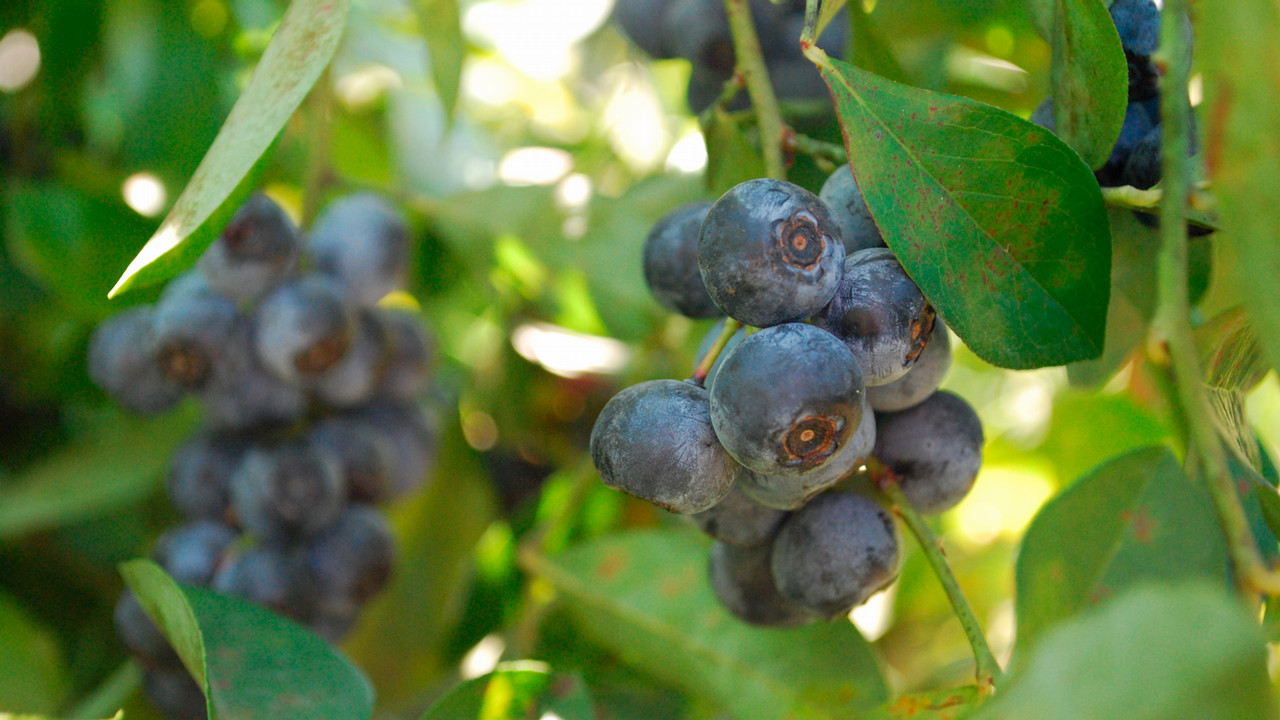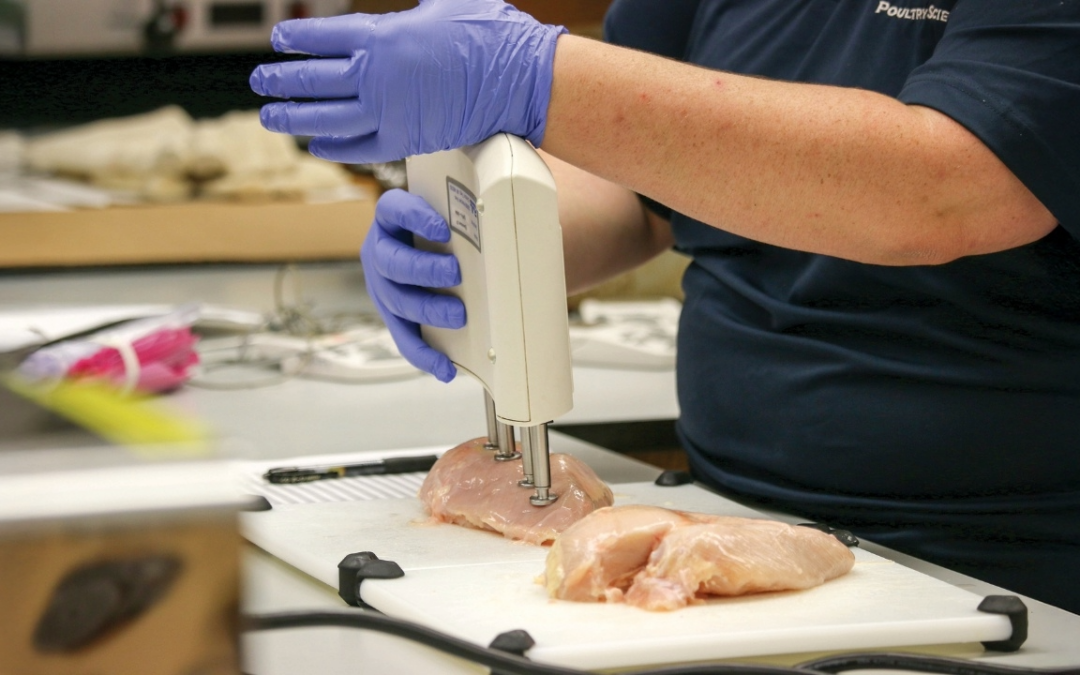Alabama blueberry farmers could soon start growing more frost-tolerant cultivars thanks to recent research at Auburn University. Most Alabama growers are still heavily relying on the native species rabbiteye (Vaccinium virgatum Ait), while producers in neighboring states such as Florida, Georgia and North Carolina have switched to southern highbush blueberries (V. Corymbosum L. interspecific hybrids) for earlier maturity and superior qualities such as larger berries, fewer seeds, thinner skin and often longer shelf life and better taste.
“But southern highbush tends to bloom much earlier than rabbiteye,” said Sushan Ru, an assistant professor in the Auburn Department of Horticulture. “This means the plants are more prone to frost damage unless the growers are equipped with frost protection such as overhead irrigation, which most Alabama growers are not.”
This is why Ru set out to test and identify newly developed advanced selections of highbush blueberries that could offer the consumer-preferred quality traits while blooming later in the season and avoiding frost damage.
Her study included 53 cultivars and advanced selections, most of which are new to Alabama. This collection included 37 southern highbush, one northern highbush and 15 rabbiteye selections.
“We were looking for advanced selections that would bloom in late February and early March, so they can avoid frequent frost events in the early spring,” said Ru, who is also a researcher in the Alabama Agricultural Experiment Station. “Even if a bad frost hit in late February, those late-blooming cultivars would have a better chance to bounce back.”
After growing and testing for yield and berry quality, her findings have produced some clear stars.
Growers experienced a historical frost event in spring 2023, which wiped out most of the production in Alabama, especially in the southern region of the state. At the Experiment Station’s Brewton Agricultural Research Unit in south Alabama, two of the advanced selections bloomed in early to mid-March before experiencing the devastating frost in mid-March. The latest-blooming of the two selections, an advanced selection from North Carolina State University yet to be released, produced more than 300 grams of high-quality berries per plant in its first harvest season — 40 times higher than most other cultivars. Similarly, the newly released North Carolina cultivar Rowan produced 172 grams per plant — 17 times higher than other cultivars.
In addition to higher yield and earlier maturity, these highbush collections also exceeded common rabbiteye cultivars on fruit quality, including larger size, crisper texture, fewer seeds and thinner skin.
At the E.V. Smith Research Center in central Alabama, the same two advanced selections from North Carolina also were among the highest producers of quality berries, in addition to the northern highbush cultivar Blue Ribbon and the new rabbiteye selection Overtime. All four had their first blooms in early to mid-February before experiencing severe frosts in mid-March.
Ru said that while several new cultivars and advanced selections could be successful for Alabama growers, the particular plants grown should depend on region and desired harvest period.
“Adopting late-blooming highbush cultivars can not only help avoid drop loss due to spring frost, but also significantly advance the harvesting window and improve fruit quality,” she said. “This will open new opportunities for our growers to produce for a wholesale market and local schools.”
Ru’s research currently is funded by the USDA-NIFA Agriculture and Food Research Initiative grant. Ru is working with other breeding programs to make the frost-tolerant cultivars available for Alabama growers to test on their own farms.





